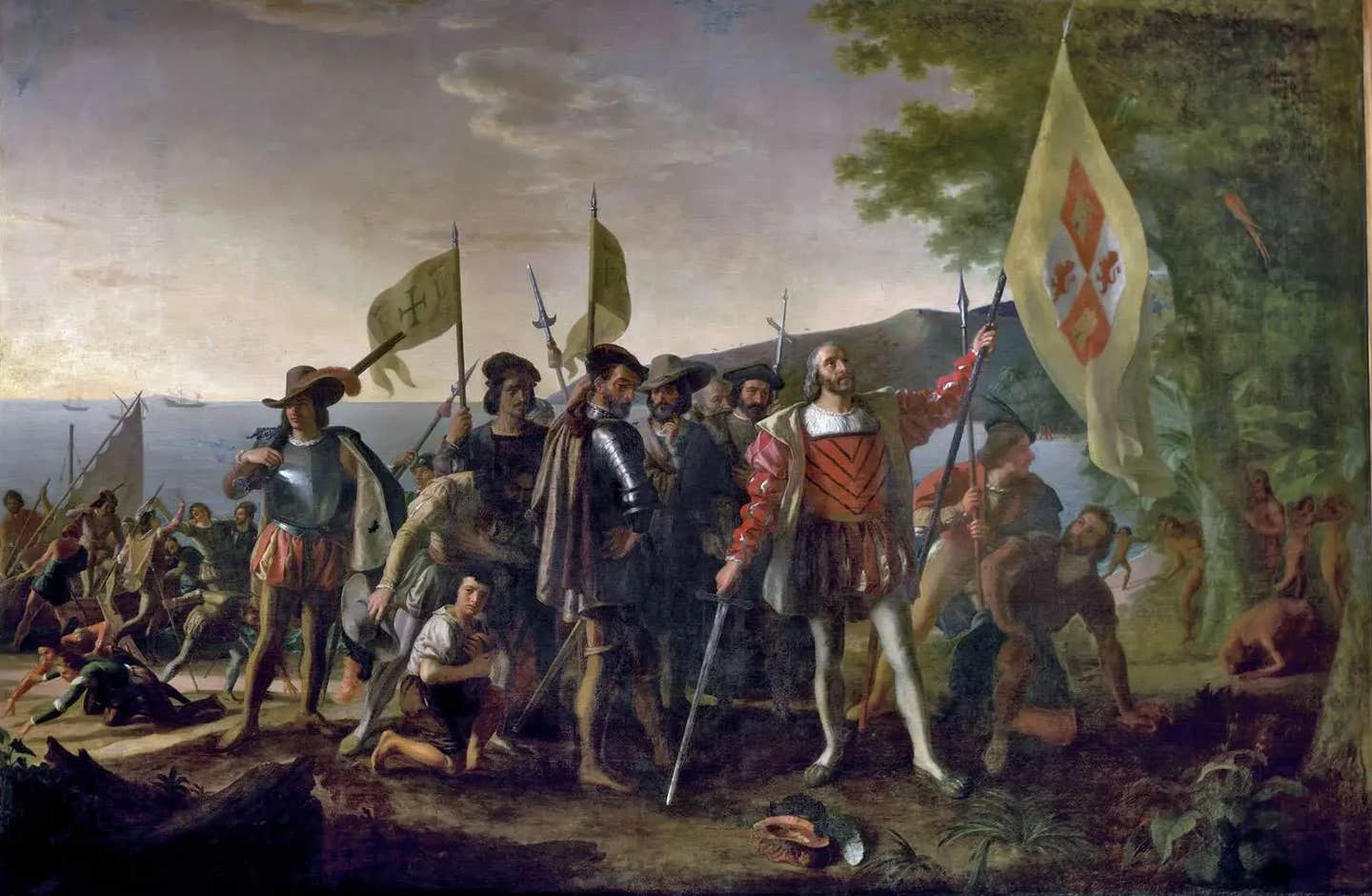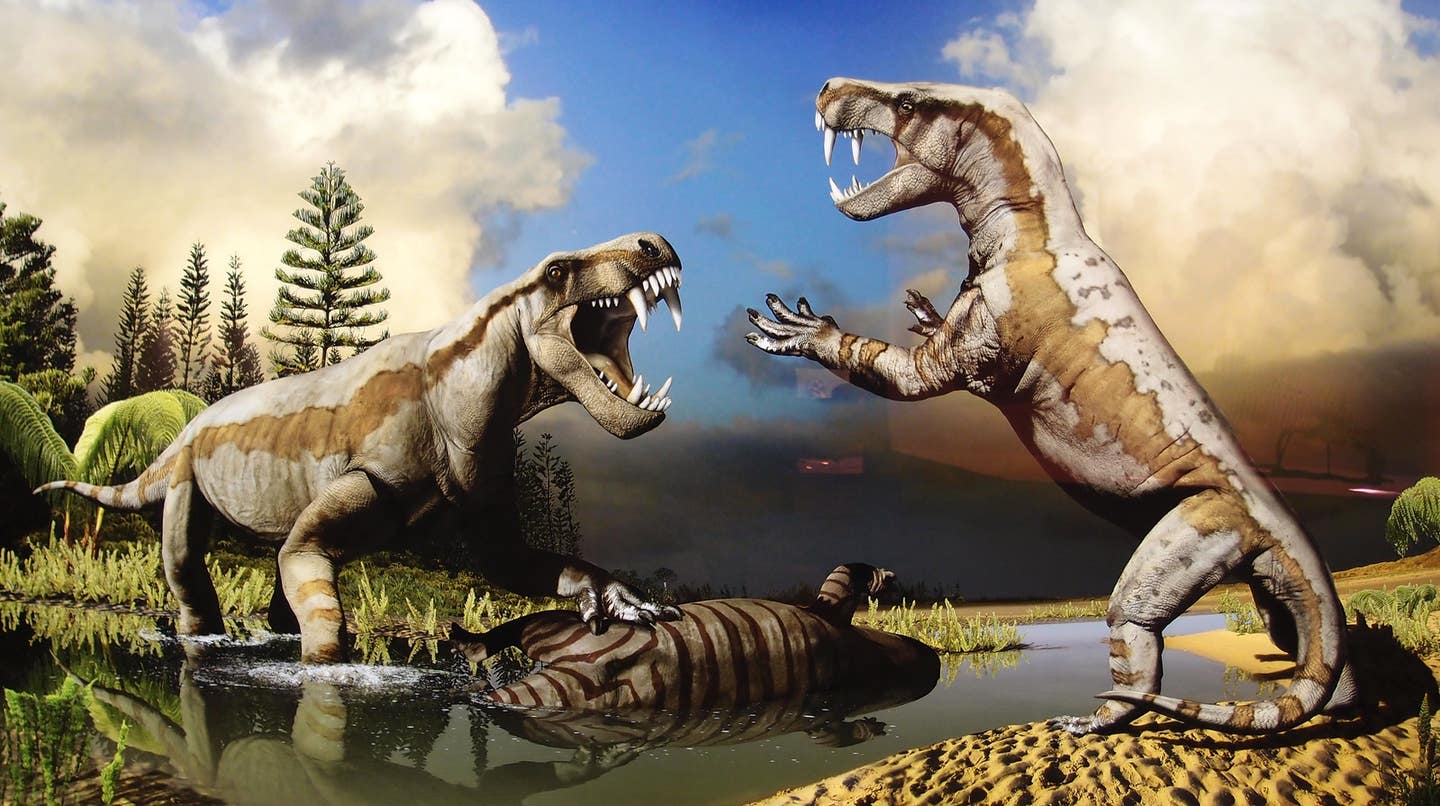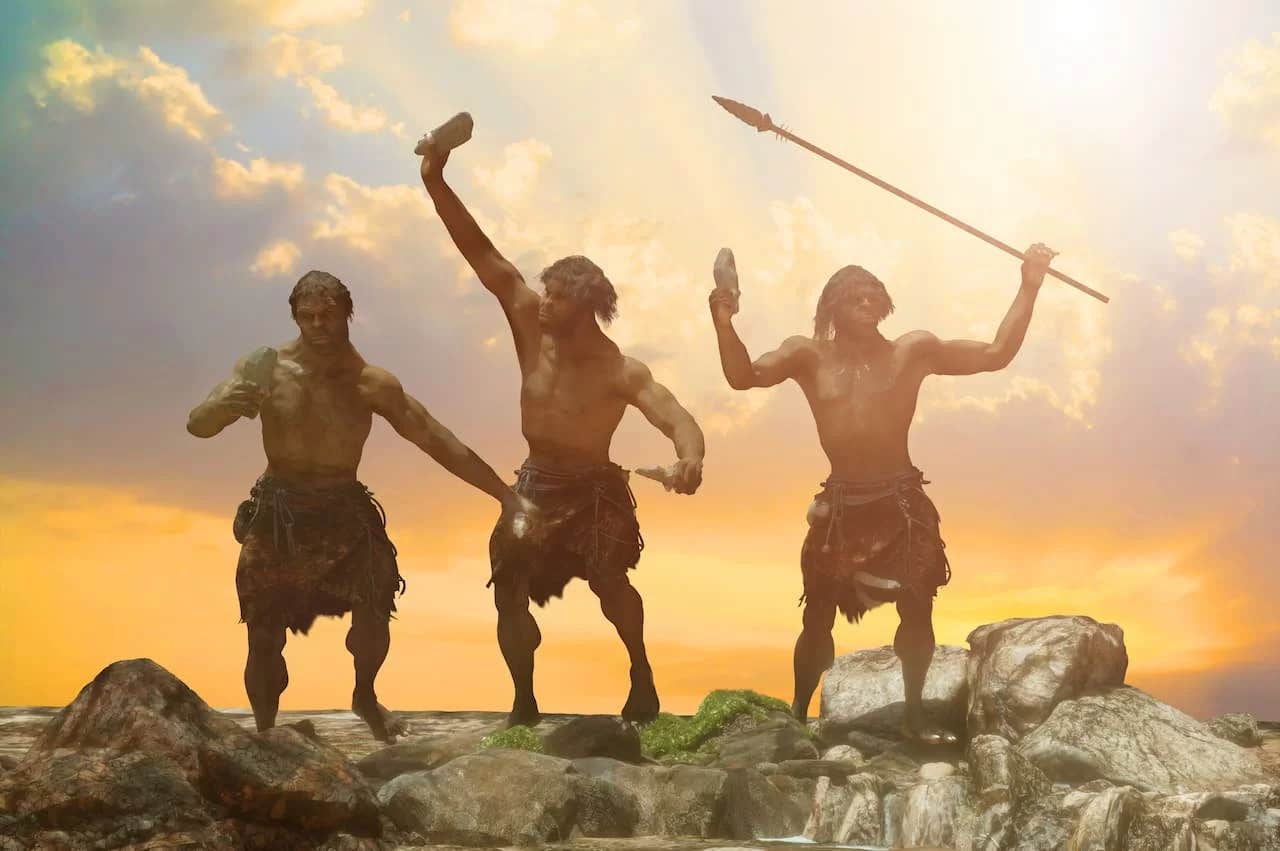America was actually discovered 150 years before Christopher Columbus
New research suggests Genoese sailors knew of North America over 150 years before Columbus, reshaping early exploration history.

Landing of Columbus, oil on canvas by John Vanderlyn, 1846 (CREDIT: Architect of the Capitol)
In a new analysis of ancient writings, scholars have uncovered evidence that sailors from the hometown of Christopher Columbus might have been aware of the existence of North America over a century before his famous voyage in 1492.
The breakthrough comes from a document dated to around 1345, written by a Milanese friar named Galvaneus Flamma, and was analyzed by Professor Paolo Chiesa, an expert in Medieval Latin literature. Chiesa described the discovery as "astonishing" due to its unexpected reference to a land identifiable as part of the North American continent.
This document, known as Cronica universalis, offers what is likely the earliest Mediterranean reference to the American continent. Specifically, it mentions a place called “Marckalada” or “Markland,” a name that has been linked to the Atlantic coast of North America, including regions like Newfoundland or Labrador, as recorded in Icelandic sources.
The Genoese sailors, according to Chiesa, were possibly aware of this land, having picked up rumors while trading with northern Europeans. This discovery sheds new light on the broader knowledge of geography circulating in Italy long before Columbus’s journey.
The findings were published in the journal Terrae Incognitae, and they add fuel to ongoing debates surrounding what Columbus truly expected to find when he set sail.
Questions about Columbus’s legacy have intensified in recent years, especially around the time of Columbus Day, which is increasingly being replaced by Indigenous Peoples’ Day in many parts of the United States. Statues of Columbus have been torn down or vandalized as a growing number of people reexamine his role in history and the consequences of European colonization.
Professor Chiesa’s research suggests that while the information in Cronica universalis is fragmentary, it provides important context to the notion that knowledge of the Americas may have been circulating in Europe well before Columbus.
Related Stories
He explains that Genoa, the city where Columbus was born, was a hub of maritime trade, serving as a gateway for news and stories from far-off lands, including Greenland and other northern territories. Galvaneus Flamma, the author of the document, was well-connected to the ruling family in Milan and wrote extensively on historical subjects. His writings provide a unique perspective on Milanese history and beyond.
The document itself was unfinished, but it attempted to chronicle the history of the world from creation onward. In one passage, Galvaneus makes reference to rumors of lands to the northwest, believed to be for the potential of commercial gain.
He describes these lands as being “rich in trees” and inhabited by animals, characteristics not unlike those of the Markland mentioned in the Grœnlendinga Saga, a medieval Icelandic text. Galvaneus’s detailed description of Greenland, coupled with his mention of Marckalada, reflects the knowledge circulating among Genoese sailors at the time.
“What makes the passage exceptional is its geographical provenance: not the Nordic area, as in the case of the other mentions, but northern Italy,” Chiesa says. He adds that while many of the rumors Galvaneus recorded were too vague to be included in maps or scholarly texts, this discovery demonstrates how information from Nordic sources may have reached Italy long before Columbus set sail.
The mention of Marckalada suggests that tales of this distant land traveled from the northern harbors, carried by Scottish, British, Danish, and Norwegian sailors trading with Genoese merchants.
Chiesa emphasizes that Cronica universalis is a reliable source, as Galvaneus is careful to note when he is recounting oral stories, often supporting his claims with elements from both legendary and factual accounts. This level of detail, Chiesa believes, lends credibility to the friar’s account of the Genoese sailors having heard about North America from their northern trading partners.
Though there is no evidence that Italian sailors themselves reached these northern lands, the Genoese were well positioned to gather news and goods from northern Europe and transport them to the Mediterranean.
Chiesa also highlights the advanced geographical knowledge of the north possessed by Genoese and Catalan sailors, as evidenced by their detailed nautical charts from the fourteenth century. “It has long been noticed that the fourteenth-century portolan charts drawn in Genoa and in Catalonia offer a more advanced geographical representation of the north,” Chiesa explains, indicating that this knowledge likely came from direct contact with northern European traders.
Although the exact extent of Genoese sailors’ understanding of the American continent remains uncertain, the discovery of Cronica universalis opens the door to new interpretations of European exploration in the Middle Ages. It suggests that Italian merchants and sailors may have been aware of lands beyond Greenland long before Columbus embarked on his voyage.
As of now, Cronica universalis remains unpublished, but there are plans for a future edition as part of a scholarly program at the University of Milan. This forthcoming publication will likely spur further discussion on the global exchanges of knowledge that took place in the centuries leading up to the age of exploration.
Note: Materials provided above by The Brighter Side of News. Content may be edited for style and length.
Like these kind of feel good stories? Get The Brighter Side of News' newsletter.
Joseph Shavit
Head Science News Writer | Communicating Innovation & Discovery
Based in Los Angeles, Joseph Shavit is an accomplished science journalist, head science news writer and co-founder at The Brighter Side of News, where he translates cutting-edge discoveries into compelling stories for a broad audience. With a strong background spanning science, business, product management, media leadership, and entrepreneurship, Joseph brings a unique perspective to science communication. His expertise allows him to uncover the intersection of technological advancements and market potential, shedding light on how groundbreaking research evolves into transformative products and industries.



